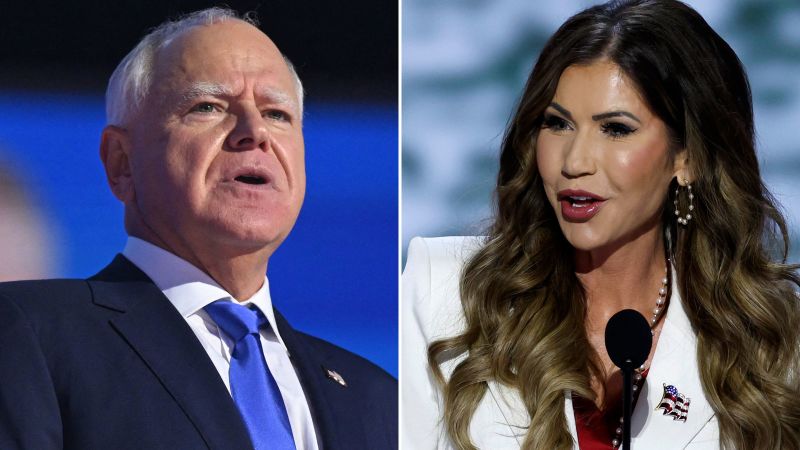Former members of Congress Tim Walz and Kristi Noem, now governors of Minnesota and South Dakota respectively, have taken starkly different paths in their political careers. While they once cosponsored legislation together and had a friendly rapport, they are now engaged in a war of words, with Noem criticizing Walz as a “radical” and accusing him of not taking decisive action during the George Floyd protests. Walz, on the other hand, has chosen not to respond to Noem’s recent comments and instead focuses on working across the aisle for bipartisan solutions.
Despite their current antagonism, Walz and Noem used to work together on various bills during their time in Congress. They both pushed the Protect Our Prairies Act of 2013 and signed on as cosponsors for over 150 bills. Despite their differing political ideologies, their shared focus on agriculture and rural protections brought them together in Congress, showcasing an unlikely partnership that endured even after they left Capitol Hill. Now as governors, their differences have become more pronounced, with Walz pursuing social welfare programs and Noem positioning herself as a conservative firebrand.
Friendships formed in Congress can endure beyond political differences, as seen in the relationships between Obama and Coburn, as well as McConnell and Biden. The camaraderie between Walz and Noem dissipated as they rose to their respective governorships and began to clash on issues like Covid restrictions and biofuels policy. Noem gained attention for her resistance to lockdown orders during the pandemic, while Walz continued to implement restrictions in Minnesota. This divergence in approaches further strained their relationship and led to public disagreements.
The geographic proximity of Minnesota and South Dakota helped compel Walz and Noem to collaborate on certain issues as governors, such as biofuels and agriculture policy. However, their differences on handling the Covid pandemic and other policy matters led to a deterioration of their public relationship. By 2024, any semblance of camaraderie had turned into subtle jabs and criticisms, with Noem hoping to elevate her political profile through a book release and Walz responding with a mock of her controversial anecdote about shooting her dog. Despite their history as Congress colleagues, their current dynamic reflects the polarized political landscape in which they operate.
Overall, the journey from bipartisan cosponsors in Congress to political rivals as governors showcases the complexities of political relationships and the evolving nature of alliances in changing political landscapes. Noem and Walz’s differing ideologies and priorities have driven them apart, highlighting the challenges of maintaining friendships across the aisle in today’s increasingly polarized political environment. While their former partnership may have been rooted in shared interests and geography, their divergent paths as governors have solidified their roles as political foes rather than allies.













